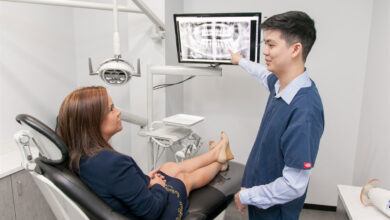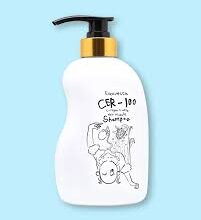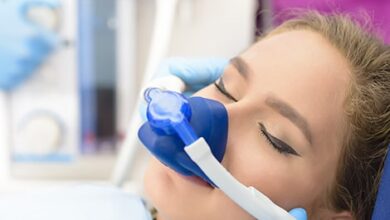Top 10 Allergic Rhinitis Treatments You Should Know About

Allergic rhinitis, commonly known as hay fever, is a prevalent allergic condition that affects the nasal passages, causing symptoms such as sneezing, itching, nasal congestion, and watery eyes. If you’re seeking effective allergic rhinitis treatment in Alexandria, VA, understanding your options is crucial. This article explores the top 10 treatments available to manage and alleviate allergic rhinitis symptoms.
1. Antihistamines
Antihistamines are commonly used to relieve sneezing, itching, and runny nose associated with allergic rhinitis. They work by blocking the effects of histamine, a chemical released by the immune system during an allergic reaction.
How They Work: Antihistamines can be taken orally (pills or liquid) or as nasal sprays. They are effective in reducing symptoms caused by allergens like pollen, dust mites, and pet dander.
Popular Brands: Claritin, Zyrtec, Allegra, Benadryl.
2. Nasal Corticosteroid Sprays
Nasal corticosteroid sprays are highly effective for treating inflammation and congestion in the nasal passages caused by allergic rhinitis. They work by reducing swelling and mucus production in the nasal lining.
How They Work: These sprays are applied directly into the nose and can provide long-term relief from symptoms. They are safe for daily use and are often recommended as a first-line treatment for moderate to severe allergic rhinitis.
Popular Brands: Flonase, Nasacort, Rhinocort, Nasonex.
3. Decongestants
Decongestants help reduce nasal congestion by constricting blood vessels in the nasal passages, allowing for easier breathing. They are available in oral forms (pills or liquid) and nasal sprays.
How They Work: Decongestants provide temporary relief from nasal congestion but should be used for short periods due to the risk of rebound congestion with prolonged use.
Popular Brands: Sudafed (pseudoephedrine), Afrin (oxymetazoline).
4. Allergy Shots (Immunotherapy)
Allergy shots, also known as immunotherapy, are a long-term treatment option for allergic rhinitis. They involve injecting small amounts of allergens under the skin to desensitize the immune system over time.
How They Work: Allergy shots can reduce the severity of allergic reactions and may provide long-lasting relief from symptoms. They are typically administered by allergists and require a series of injections over several months to years.
5. Allergy Tablets (Sublingual Immunotherapy)
Sublingual immunotherapy (SLIT) involves placing tablets containing allergens under the tongue. This treatment method aims to desensitize the immune system to specific allergens, similar to allergy shots.
How They Work: Allergy tablets are taken daily at home after an initial dose under medical supervision. They are convenient for patients who prefer oral treatments over injections.
Popular Brands: Grastek, Oralair, Ragwitek.
6. Saline Nasal Irrigation
Saline nasal irrigation involves rinsing the nasal passages with a saltwater solution to flush out allergens and mucus. It can help reduce nasal congestion and improve breathing.
How It Works: Neti pots or nasal irrigation bottles are used to deliver the saline solution into the nose. This treatment is safe and can be used daily as needed.
7. Anticholinergic Nasal Sprays
Anticholinergic nasal sprays are another option for treating allergic rhinitis symptoms, particularly nasal congestion. They work by reducing nasal secretions and improving airflow through the nasal passages.
How They Work: These sprays are prescribed for moderate to severe symptoms and are typically used on a short-term basis due to potential side effects.
Popular Brands: Atrovent (ipratropium bromide).
8. Avoidance of Allergens
Avoiding allergens that trigger your allergic rhinitis symptoms is an essential part of managing the condition. Identify common allergens such as pollen, dust mites, pet dander, and mold, and take steps to minimize exposure.
How to Avoid Allergens: Use allergen-proof covers on pillows and mattresses, keep windows closed during high pollen seasons, use air purifiers with HEPA filters, and bathe pets regularly.
9. Environmental Controls
Environmental controls can help reduce allergen exposure indoors and improve allergic rhinitis symptoms. These measures complement other treatments and can significantly impact symptom severity.
Examples of Environmental Controls: Maintain low humidity levels to discourage dust mites, vacuum carpets and upholstery regularly, and avoid smoking indoors.
10. Consultation with an Allergist or ENT Specialist
Consulting with an allergist or ear, nose, and throat (ENT) specialist in Alexandria, VA, is essential for personalized treatment and management of allergic rhinitis. These specialists can perform allergy testing to identify specific allergens and recommend appropriate treatments based on your medical history and symptoms.
Why Consult a Specialist: Allergists and ENT specialists have expertise in diagnosing and managing allergic conditions. They can prescribe medications, recommend immunotherapy, and provide guidance on environmental controls to help you manage allergic rhinitis effectively.
Finding Allergic Rhinitis Treatment in Alexandria, VA
For residents of Alexandria, VA, finding reliable treatment for allergic rhinitis is crucial for managing symptoms and improving quality of life. Consider the following steps to find specialized care:
- Research Local Allergists and ENT Specialists: Look for board-certified specialists with experience in treating allergic rhinitis.
- Check Patient Reviews: Read reviews and testimonials from other patients to gauge the quality of care provided.
- Consult with Your Primary Care Physician: Your primary care physician can provide referrals to allergists or ENT specialists in Alexandria.
- Visit Local Clinics and Hospitals: Many clinics and hospitals in Alexandria offer allergy testing and treatment services. Visit their websites or call for more information.
Conclusion
Effective treatment for allergic rhinitis in Alexandria, VA, involves a combination of medications, immunotherapy, environmental controls, and allergen avoidance strategies. By understanding your treatment options and consulting with qualified specialists, you can manage allergic rhinitis symptoms effectively and improve your overall well-being. Remember to follow your doctor’s recommendations and stay informed about new developments in allergic rhinitis treatment to achieve the best possible outcomes.



